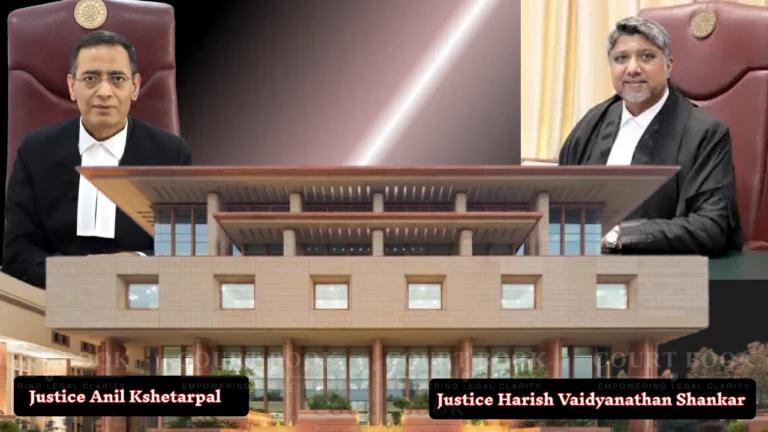In a sensitive custody dispute, the Delhi High Court has upheld a Family Court order granting a father limited unsupervised visitation with his five-year-old son. The child has been living with his mother since birth.
The mother had challenged the earlier order, arguing that her son was not yet comfortable being left alone with his father. The court, however, concluded that gradual independent interaction with the father would best serve the child’s emotional growth.
Background
Husband and Wife, estranged spouses, have been locked in a long legal tussle over their son, born in September 2019. While the child has remained in the mother's custody, the father has been seeking more meaningful visitation rights. Initially, in August 2022, the Family Court allowed limited in-person meetings once a month and video calls twice a week.
Later, based on directions from the High Court, the case was referred to a court counsellor and then a child psychologist at AIIMS to evaluate the child’s comfort level. The counsellor noted the child was 'very much comfortable' with his father during play sessions, although he showed separation anxiety when his mother stepped out. The psychologist observed initial hesitation but gradual improvement, saying the child had started interacting and accepting gifts from his father, though still remaining clingy to his mother.
Court's Observations
Hearing both sides, the division bench of Justice Anil Kshetarpal and Justice Harish Vaidyanathan Shankar emphasized that the primary focus must be the child's welfare not the parents' personal disputes.
"While adjudicating disputes pertaining to custody or visitation, the paramount consideration before the Court is the welfare and best interest of the child," the bench observed.
Read also:- Supreme Court Puts Jamnagar Land Trial on Hold in Three-Decade Dispute Between Reliance and BPCL
The Judges also expressed concern over parental influence during such disputes.
"It is disheartening that even educated parents… engage in conduct to the detriment of their own children," they remarked, cautioning that tutoring or influencing a child against the other parent causes lasting emotional harm.
They noted that while the child had naturally grown more attached to the mother, he was showing no hostility or rejection towards the father. The difficulty, they said, stemmed from separation anxiety and the mother’s overprotective presence during visits, which made independent bonding nearly impossible.
Read also:- Delhi High Court Urges Law Commission to Amend Disability Act for Fair Allocation of Unfilled College Seats
Decision
The High Court found no fault in the Family Cour's September 2024 order granting the father unsupervised visitation twice a month for three hours each. It ruled that this gradual arrangement could help build a natural bond between father and son.
The bench refused to interfere with the Family Court's decision, stating that any future changes should be considered only if new circumstances arise. On the father's contempt petition alleging the mother’s interference during visits, the court said such implementation issues must be addressed before the Family Court itself.
Concluding the matter, the Judges disposed of both the appeal and the contempt petition, while making it clear that the Family Court remains free to adjust the arrangement if needed in the future.
Case Title:- X and Y and others















